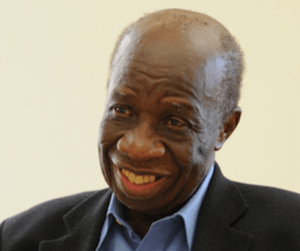Experts meet to co-ordinate reports on Sahel Project

The International Atomic Energy Agency (IAEA) is holding an African Regional Meeting for the final co-ordination of the Sahel Project aimed at enhancing the scientific basis for the integrated management of shared aquifers of the Sahel region.
An aquifer is an underground layer of water-bearing permeable rock from which groundwater can be extracted using water well.
The Sahel region has five aquifers; the Chad Basin, Liptako-Gourma and Upper Volta System, Lullemeden Aquifer, Senegalo-Mauritanian Aquifer and Taoudeni which are shared by 13 African countries.
The region is also characterised by an increased number of dug out wells and irrigation systems with either inadequate or no regulation of groundwater abstraction, overexploitation, lower groundwater levels and the deterioration of the water quality. However information on aquifer geometry, groundwater availability in terms of quantity and quality and renewability is still inadequate, immensely affecting sustainable management of groundwater.
The five-day meeting, which is being hosted by the Ghana Atomic Energy Commission (GAEC) in Accra, has participants from all the 13 countries in the Sahel Region involving Ghana, Algeria, Benin, Burkina-Faso, Cameroon, the Central African Republic, Chad, Mali, Mauritania, Niger, Nigeria, Senegal and Togo.
Professor Francis K. A. Allotey, a renowned Mathematician and Scientist, who chaired the opening ceremony on Monday, said the Sahel project had been on-going for the past three years in all the countries in the Sahel region, with major progress made in relation to methodology, data and knowledge gaps in the shared aquifer systems in the region.
He said human and infrastructural capacity had also been enhanced for the effective application of conventional and isotopic techniques on shared groundwater resources, while the scientific basis for preparation of a Strategic Action Plan (SAP) to establish legal, policy and institutional framework for multi-partite management and rational use of shared aquifers have been established and were accessible.
He commended the project teams and the IAEA for their hard work and passion in contributing to the success story, saying with the final meeting stakeholders would raise awareness and promote information sharing among themselves on sustainable use and management of shared groundwater resources.
He said this would help in addressing issues relating to public health, food and nutrition, security and many other socio-economic benefits.
Mr Ben Ampomah, the Executive Director of the Water Resources Commission, thanked the IAEA for the constant support in areas including the provision of equipment for research and capacity building.
The programme, he said, was timely when surface water was fast dwindling due to the impact of climate change and other negative human activities, thus expert opinion based on scientific evidence was needed so that mitigation measures could be urgently put in place to safeguard the important resource.
He said it was the aspiration of Africa that by the year 2025 every household would have access to adequate and affordable water.
“Currently over 76 per cent of Ghana’s population in both rural and urban areas have access to clean potable water,” he said, adding that this figure was expected to rise to 100 per cent by the year 2020 when more boreholes would be drilled for the fast growing population.
He said nonetheless, in recent years, challenges such as salinity, fluoride and nitrate contamination had been identified in most counties and groundwater managers had to address the challenge.
Professor Benjamin J. B. Nyarko, the Director-General of the Ghana Atomic Energy Commission, said the Commission was privileged to host the meeting at a time when the country needed to address some of the challenges in underground water exploration.
Underground water provides a much safe and reliable source of drinking water through the drilling of boreholes and hand dug wells to communities.
He said GAEC, with support from the IAEA, established the Isotope Hydrology Laboratory in 2010, to address the challenges and had been used to provide services in Technical Co-operation Projects, Co-ordinated Research Projects as well as national projects on water resources assessment using isotopes techniques.
GAEC, he said, also provided training for both national and international students from the sub-region pursuing postgraduate studies in Ghanaian universities.
To enhance human resource development in nuclear and related technologies in Ghana and Africa GAEC, in collaboration with the University of Ghana and the IAEA, established the School of Nuclear and Allied Sciences in 2006 to address the numerous societal challenges.
It introduced Hydrological Sciences as a new programme with emphasis on Isotope Hydrology.
He said the Government remained grateful to the IAEA for supporting its capacity-building initiatives through technical training and sandwich PhD programmes.
He said the outcome of the meeting would go a long way to help improve activities of the Isotope Hydrology Laboratory and also improve water resources management in the sub-region.
Mr Neil Jarvis, the IAEA Representative of the IAEA, presented a status update of the Sahel Project and some key findings which deals with the methodology and enhanced human capacity among other things.
Source: GNA
